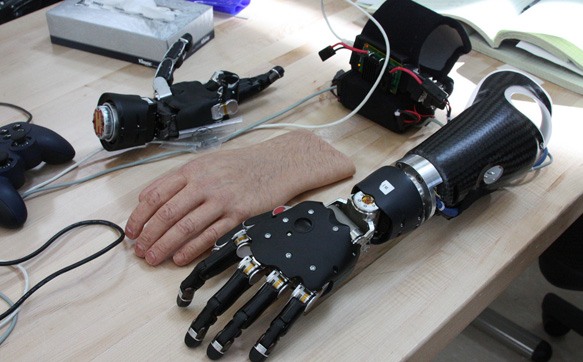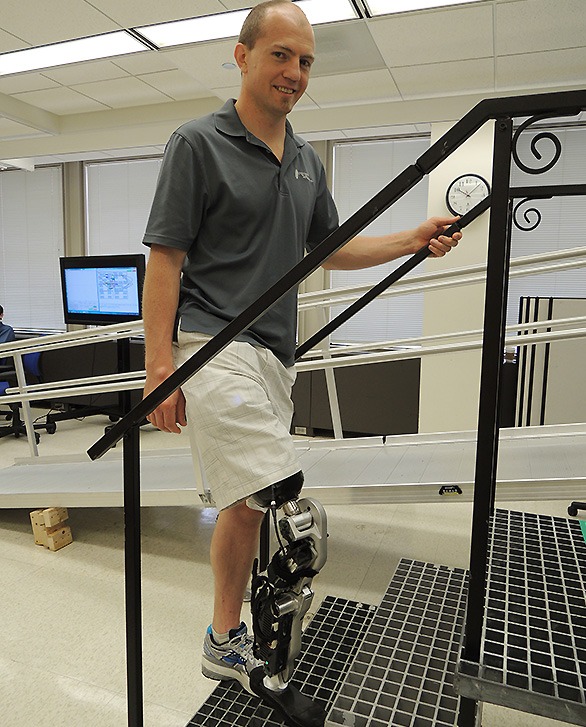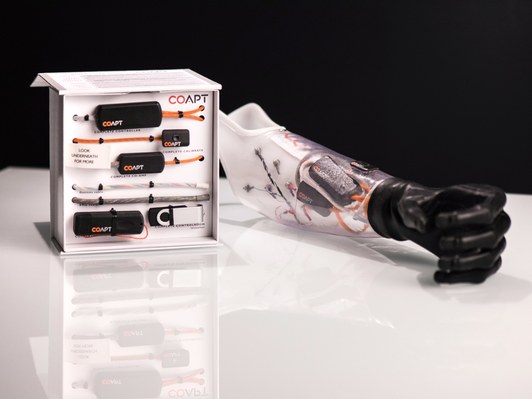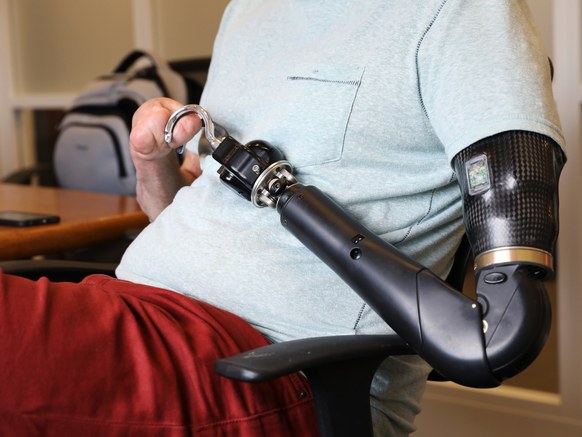Andrew Rubin’s hand was amputated a year ago. But now he is sitting with a surface tablet and witnessing a white skeletal hand shutting and opening the display screen of the tablet. In a year’s time, Rubin has equipped himself with a tool which is fitted to his upper arm.

Electrodes present on his arm is connected to a box that records the data related to the patterns of firing of the nerve signals, this furthermore allows Rubin to train his prosthetic limb to perform like a real human hand. Rubin says, “when he tries to close a hand, the device contracts certain muscles located in his forearm and then the software detects and recognises the patterns which are created when he tries to flex and extend his missing hand.”
Rubin 49-year-old professor residing in Washington, DC, travels several times in a month to a startup company is Baltimore, Infinite Biomedical Technologies which utilises the deep learning algorithms for recognising the signals of his upper hand which in turn functions like several hand movements.

More than 150,000 people, every year get their limbs amputated after they meet with an accident or due to several medical reasons. After people lose their hand, the get fitted with a prosthetic device that can recognise a finite amount of signals to control a foot or a hand.
Like Infinite, many other tech firms are coming up with advanced technologies in creating prosthetic controllers that make the lives of people like Rubin easier. Rahul Kaliki, the CEO of Infinite said “most of their patients want to get more than a couple of functions and recognition of Pattern allows them to do that. Kaliki allegedly told that they are now captivating much more activities across the limb.

Infinite Biomedical Technologies has a team of 14 employees. Last week on Friday, Kiliki allegedly received a notice from the officials of FDA who revealed that their product, Sense had been approved for sale in the US.









